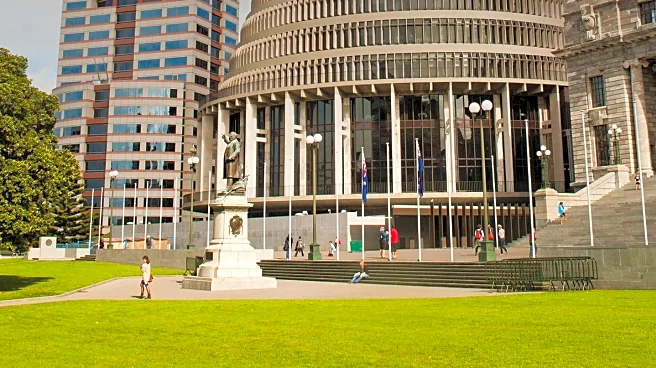What's Happening?
Nelson Airport, located 7 kilometers from Nelson's city center, has improved its accessibility by integrating cycling and walking paths. The airport features two Bike Zones for storing and reassembling bicycles, with one located at the northern end of
the terminal and another near the Rental Cars building. Additionally, the airport offers a shower facility for cyclists, although users must bring their own towels and toiletries. The Gentle Cycling Company provides bike hire services near the terminal, facilitating easy access to the surrounding areas. The airport is connected to a scenic 5-kilometer loop walkway, offering views of the Kahuroa – Richmond Ranges and Wharepapa – Arthur Range across Tasman Bay.
Why It's Important?
The development of cycling and walking paths at Nelson Airport underscores a growing trend towards sustainable and eco-friendly transportation options. By providing these facilities, the airport not only enhances the travel experience for passengers but also promotes healthier lifestyle choices. This initiative aligns with global efforts to reduce carbon emissions and encourages the use of bicycles as a viable mode of transport. The availability of bike hire services and scenic walkways also boosts local tourism, potentially increasing economic activity in the region. Such infrastructure improvements can serve as a model for other airports aiming to integrate sustainable practices.
What's Next?
As Nelson Airport continues to promote cycling and walking, it may explore additional partnerships with local businesses to expand bike hire services and enhance the overall visitor experience. The airport could also consider further investments in infrastructure, such as additional bike storage facilities or expanded walking paths, to accommodate increasing demand. Stakeholders, including local government and tourism boards, may collaborate to market these amenities, attracting more visitors and fostering a culture of sustainability in the region.
Beyond the Headlines
The integration of cycling and walking paths at Nelson Airport reflects broader societal shifts towards environmental consciousness and sustainable living. This development may influence other transportation hubs to adopt similar practices, contributing to a global movement towards reducing reliance on fossil fuels. Additionally, the emphasis on active transportation options can have long-term health benefits for the community, potentially reducing healthcare costs associated with sedentary lifestyles.
















